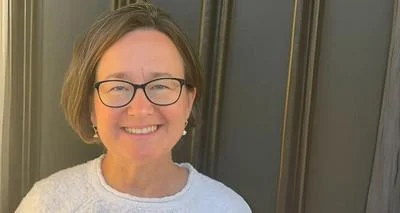Travis Tranel, Wisconsin State Representative of 49th District | Official Website
Travis Tranel, Wisconsin State Representative of 49th District | Official Website
According to the Wisconsin State Legislature's official website, the bill was described as follows: "creating a nutrient loss reduction grant program. (FE)".
The following is our breakdown, based on the actual bill text, and may include interpretation to clarify its provisions.
In essence, this bill establishes a nutrient loss reduction grant program administered by the Department of Agriculture, Trade and Consumer Protection. Grants are provided to farmers for purchasing enhanced efficiency fertilizer products, implementing variable rate technology, or preparing nutrient management plans. Enhanced efficiency fertilizers include controlled-release formulations with urease or nitrification inhibitors. Variable rate technology involves soil testing in sections no larger than six acres, with fertilizer applied at specific rates. The maximum grant amounts are $7 per acre for enhanced fertilizers, $8 per acre for soil sampling, or $2 per acre for nutrient management plans, each covering up to 50% of costs. The annual grant limit per recipient is $20,000, and grants can be used for multiple activities within a single year. Agricultural retailers may apply on behalf of farmers.
The bill was co-authored by Senator Rachael Cabral-Guevara (Republican-19th District), Representative Barbara Dittrich (Republican-99th District), Representative Joel Kitchens (Republican-1st District), Representative William Penterman (Republican-38th District), and Representative Chuck Wichgers (Republican-84th District).
Travis Tranel has authored or co-authored another 24 bills since the beginning of the 2025 session, with none of them being enacted.
Tranel graduated from Loras College in 2007 with a BA.
Tranel, a Republican, was elected to the Wisconsin State Assembly in 2011 to represent the state's 49th Assembly district, replacing previous state representative Phil Garthwaite.
In Wisconsin, the legislative process starts when a senator, constituent, group, or agency proposes an idea for a bill. After drafting, the bill is introduced, numbered, and referred to a committee for review and public input. If approved, it moves through three readings and votes in both the Senate and Assembly. Once both chambers pass the same version, the bill goes to the governor, who can sign it, veto it, or let it become law without a signature. Only a small share of bills introduced each session ultimately become law. You can learn more about the Wisconsin legislative process here.
| Bill Number | Date Introduced | Short Description |
|---|---|---|
| AB310 | 06/06/2025 | Creating a nutrient loss reduction grant program. (FE) |
| AB302 | 06/06/2025 | Authorized lights for funeral procession vehicles |
| AB299 | 05/30/2025 | Provision of virtual mental health services for students at certain UW System institutions. (FE) |
| AB219 | 04/23/2025 | A tax credit for rail infrastructure modernization. (FE) |
| AB173 | 04/09/2025 | Regulation of pharmacy benefit managers, fiduciary and disclosure requirements on pharmacy benefit managers, and application of prescription drug payments to health insurance cost-sharing requirements. (FE) |
| AB120 | 03/11/2025 | Positions for the Office of School Safety. (FE) |
| AB118 | 03/11/2025 | A transition to grazing pilot program and making an appropriation. (FE) |
| AB7 | 02/06/2025 | Requiring local approval for certain wind and solar projects before Public Service Commission approval |





 Alerts Sign-up
Alerts Sign-up